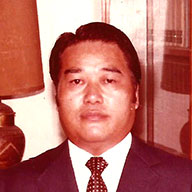Tinnitus (Ear Ringing) – Causes, Symptoms, and Treatment
The strange phenomenon where the ear is ringing without audible sound from the outside is called "tinnitus".
Generally, the ear ringing appears when you have some difficulties in hearing. This jarring noise gives you various agonies from sleeplessness to depression. The exact cause of tinnitus is a hard-to-find answer by many specialists.
Does tinnitus cause stress? I do not think that way. It is stress that cause tinnitus, isn't it? Tinnitus itself is not a disease but a symptom resulting from wide range of causes, including ear infections, foreign objects, earwax, injury from loud noises or sounds, and side effects of some medications such as aspirin and serotonin.
Although this is not definite, some research groups reported to us that climate or certain seasonable atmosphere might make people to have ear ringing, and also to those who have nervous temperament.
What is tinnitus? A definition from an internet news:
The symptoms of tinnitus include ringing noises in the ears or hearing sounds that seem to be coming from inside your head. The sounds of tinnitus may be varied and sufferers report the noise as ringing, buzzing, whistling, beating or roaring. The noise may be continuous, may come and go, be heard in one ear or in both. Tinnitus is sometimes associated with hearing loss. For some, tinnitus may be nothing but an annoying little sound they hear every now and then, but for the unlucky ones, tinnitus can reduce the ability to concentrate or hear outside noises and may become completely debilitating - preventing the sufferer from leading a normal life.
What really causes tinnitus?
Tinnitus is usually caused by damage to the microscopic hairs that line the auditory cells in the ear. These hairs usually move in response to sound waves detected, producing a brain wave that is experienced as sound. When damaged, these hairs become bent or broken and move randomly in a constant state of irritation, producing "sound" impulses in the brain.
Degenerative damage in people of advancing age is a common cause of tinnitus and usually paired with hearing loss. In younger sufferers, exposure to loud noise is probably the leading culprit.
Other causes of tinnitus may be as benign as a small plug of wax in the ear that is easily removed. Tinnitus may also occur as a result of head and neck injury, stiffening of the bones in the middle ear or as a side effect of prescription drugs.
Sometimes, tinnitus may be caused by an actual sound produced in your body that becomes audible due to disease or proximity to the ear (objective tinnitus). Circulation problems such as high blood pressure and atherosclerosis can cause the sound of blood flow in vessels close to the ear to become more forceful, or turbulent - allowing your ear to detect the sound. Malformation or narrowing of blood vessels in the head and neck can have the same effect. More rarely, tinnitus is a symptom of a tumor in the head or neck.
There is no definite answer for tinnitus at all. All the answer seems to be just guessing games.
Probably, your physician told you, "Hmmm, there's no abnormality anywhere, anyhow. Hmmm, here's your medicine." It is impossible that there's no abnormality. If there is nothing wrong, where does that ear ringing come from?
Well, how does that ringing sound produced? Many doctors in Japan believe that the cause might be due to autonomic imbalance; vegetative dystonia, or distortion of Gnathal, arthropathy. Aside from that, stiff shoulders and high blood pressure are at top list. The real cause of tinnitus is too vague.
Most cases of tinnitus are caused by the negative energy and associated with stress. Hence, the PYRO-ENERGEN treatment with relaxation, light exercise, listening to light music or to the sound of music box, vacationing, etc. may be the best way to find the truth.
Reprint Rights: You may reprint this article within your website, blog, or newsletter as long as the entire article remains the same as well as the “About the Author” box.



 Junji Takano is a Japanese health researcher involved in investigating the cause of many dreadful diseases. In 1968, he invented PYRO-ENERGEN, the first and only electrostatic therapy machine that effectively eradicates viral diseases, cancer, and diseases of unknown cause.
Junji Takano is a Japanese health researcher involved in investigating the cause of many dreadful diseases. In 1968, he invented PYRO-ENERGEN, the first and only electrostatic therapy machine that effectively eradicates viral diseases, cancer, and diseases of unknown cause.


